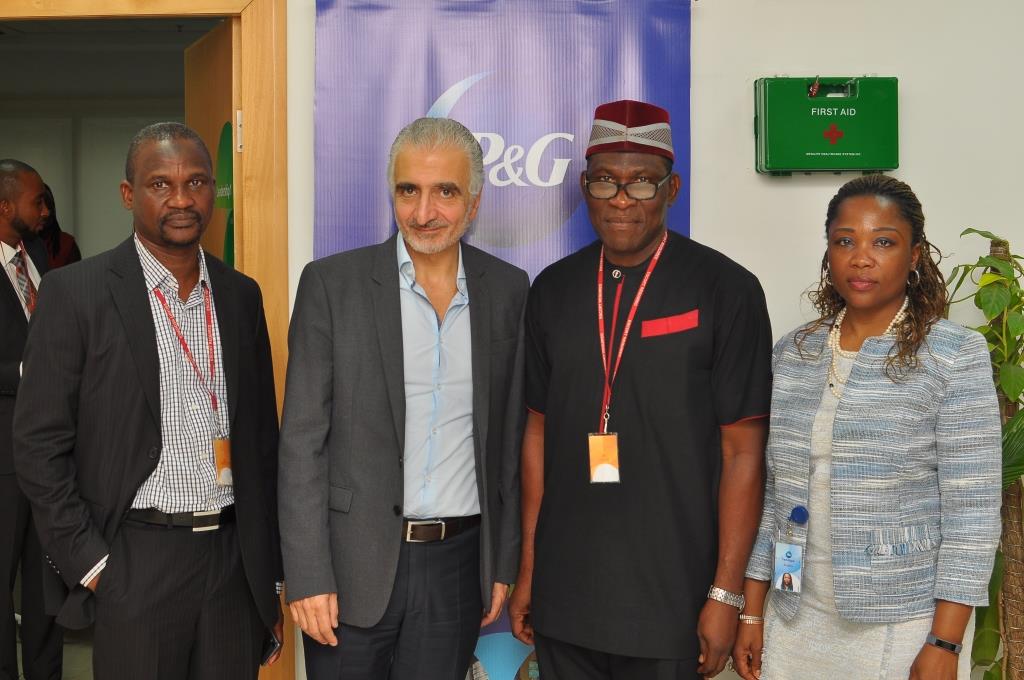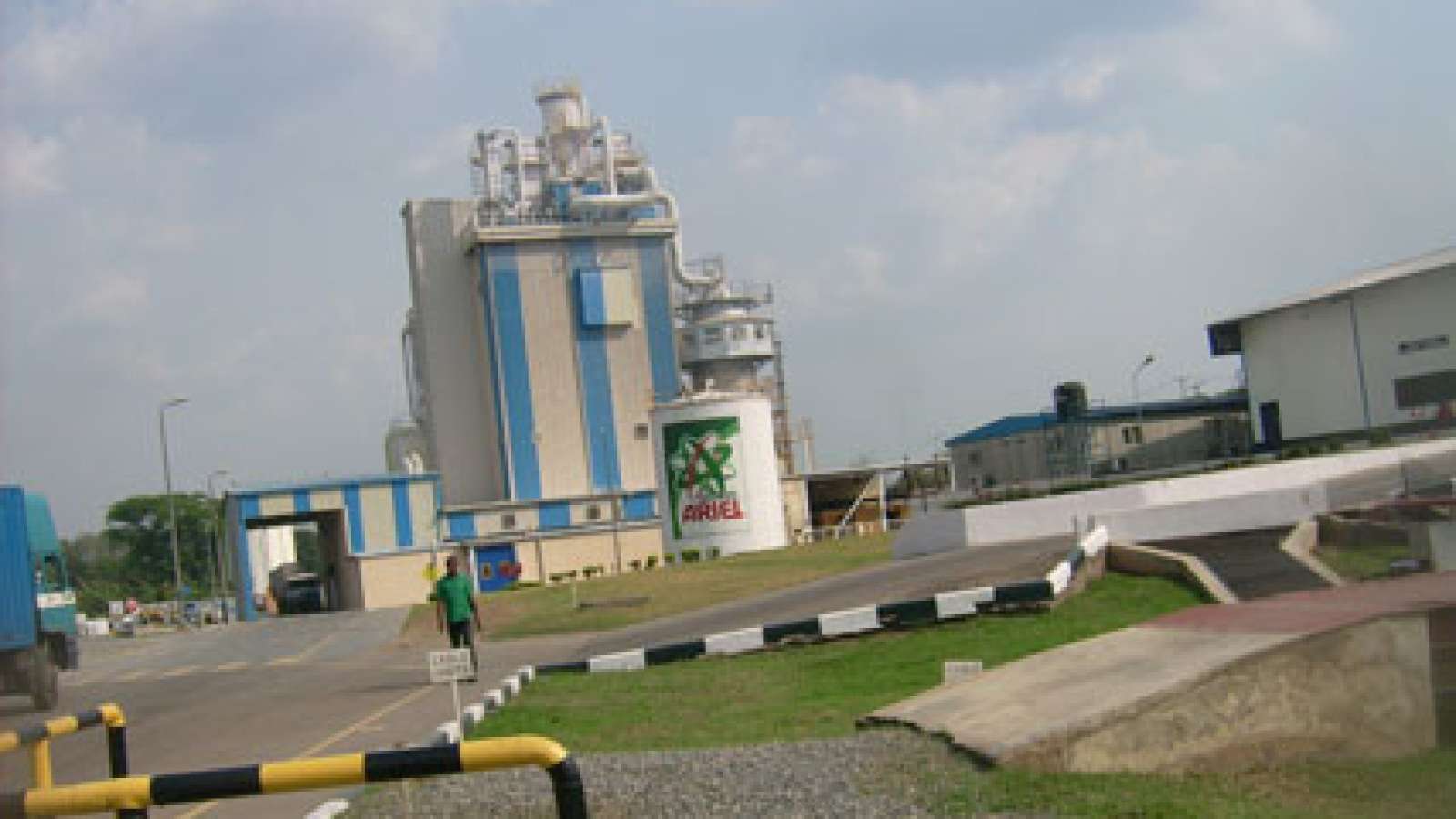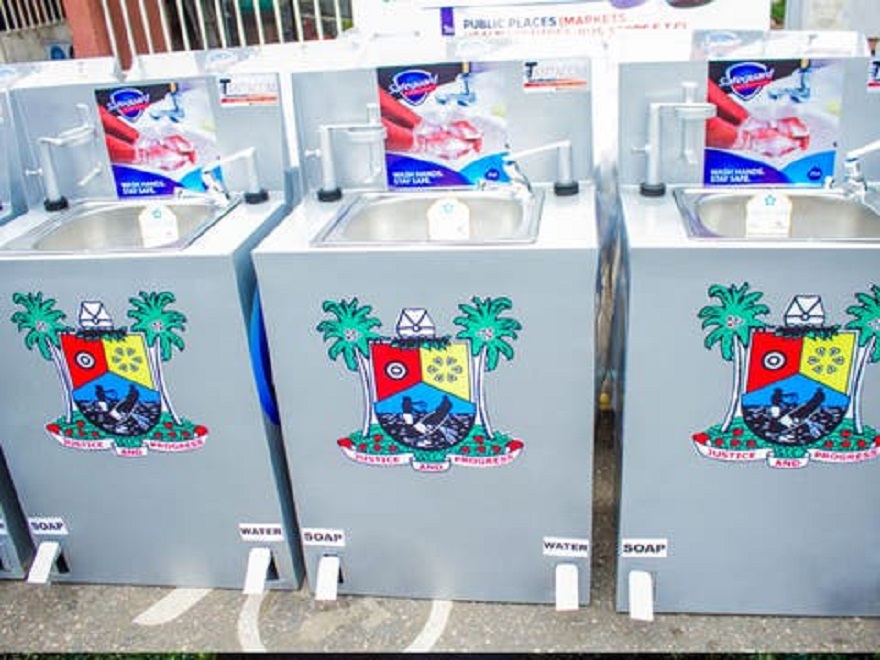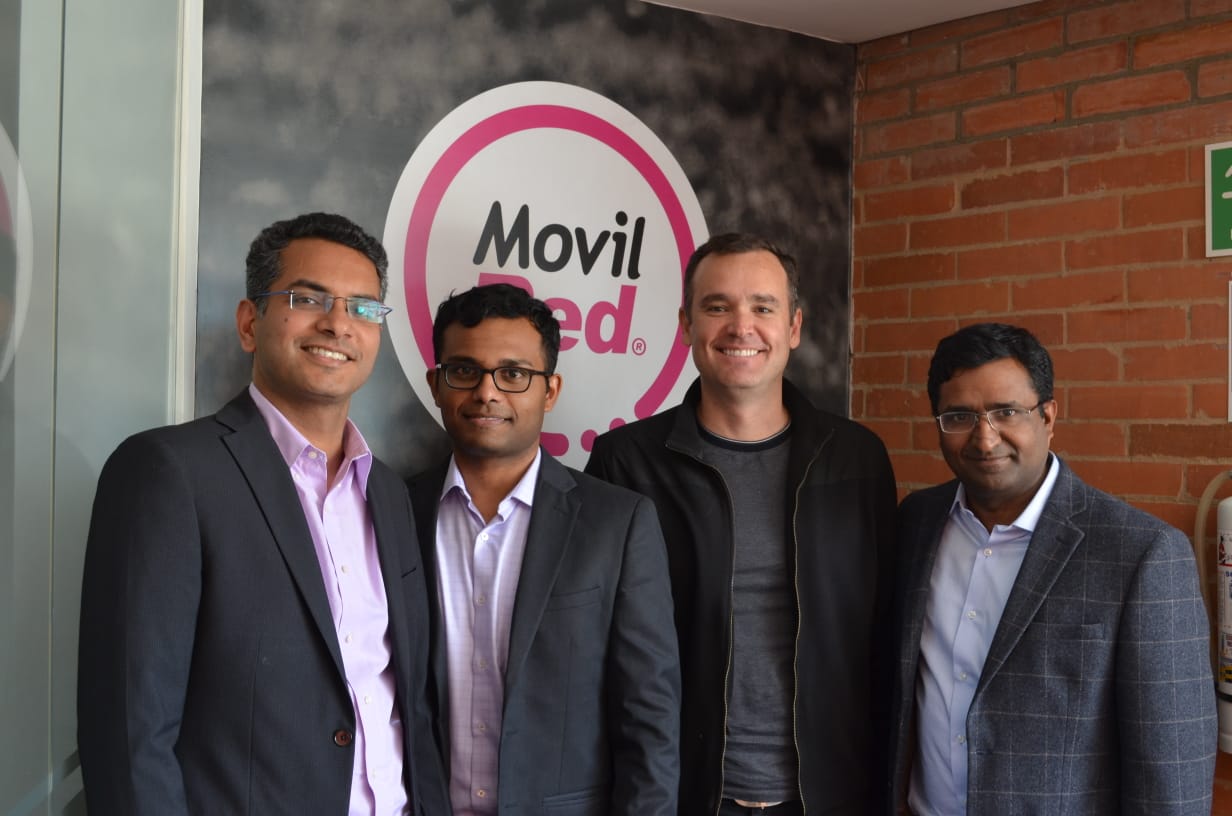Economy
P&G Meets FG, MAN, Top Local Suppliers, Pledges Increased Localization

By Dipo Olowookere
The management of leading manufacturing company and makers of brands like Always and Pampers, Procter and Gamble (P&G) Nigeria, recently engaged select local raw material suppliers in the country to an interactive meeting with the Federal Ministry of Industry, Trade and Investment and representatives from the Manufacturers Association of Nigeria (MAN).
The meeting was convened to assess the capability of local businesses and seek their participation in strengthening our raw material localization objectives in line with the Backward Integration Program (BIP) of the Federal Government.
This is following the recent commissioning of P&G Nigeria’s Always Production Line in June, which was officially done by the Vice President of Nigeria, Professor Yemi Osinbajo.
At this event, the consumer goods company, reiterated its commitment to investing in Nigeria and its support towards the Federal Government’s diversification efforts. The new local production of P&G’s Feminine Care product not only promotes inclusive growth but is also boosting job creation and value adds to the economy.
Speaking at the meeting, Managing Director of Procter and Gamble Nigeria, George Nassar, commended the Ministry’s gesture to engage local businesses saying, “We praise the Federal Ministry of Industry, Trade and Investment on their willingness to engage local suppliers and assess the capability of their businesses. That, on its own, is very encouraging and we believe today’s meeting is pivotal to accelerating our local sourcing projects.”
According to Nassar, “P&G Nigeria currently procures 100 percent of the packaging materials for its products locally and is working towards increasing the local sourcing of the raw materials we use. We will continue to partner with the government in our quest to achieve this.
“P&G is committed to doing business with more locally owned businesses and we appreciate the role the Federal Government is playing towards improving the ease of doing business in Nigeria and as a business will continue to foster a strong partnership with them to boost this effort.”
He also charged the Federal Government to continue its efforts towards enabling local entrepreneurship development and helping them with the capabilities required to produce raw materials locally.
“This will go a long way in actualizing its economic development agenda,” he said.
Speaking on the objectives of the meetings; Temitope Iluyemi, Director of Government Relations and Public Policy for Procter & Gamble Africa Operations said; “Backward integration is essential to the growth of the Nigerian economy and P&G’s aim is to manufacture as close as possible to its consumers, encourage our global partners to do the same and thereby promote technology transfer.
“We will work to pre-qualify local suppliers for materials used in the production of consumer packaged products and by extension, build capability of local manufacturers to compete effectively in regional value chains and further strengthen the diversification efforts of the Nigerian government”
Dr Francis Alaneme, Deputy Director Federal Ministry of Industry, Trade and Investment also commented, saying, “We want to increase the local sourcing of raw materials in the country and it is imperative to create opportunities like this to promote growth and provide a platform for cross-sharing and capability building.
“Partnering with corporate organizations like P&G to engage these businesses will grant us more access to notable suppliers of raw materials in the manufacturing sector and we commend the company’s effort in taking the lead on this.”
P&G has a long-standing record of building capability of local businesses for growth and development and enabling local entrepreneurship development. The company has trained hundreds of SMEs and has been involved in a series of skills building programs.
In 2015, it partnered with National Office for Technology Acquisition and Promotion (NOTAP), to host a symposium, bringing together leading academics, thought leaders, local entrepreneurs and industry members to discuss the critical issues of development in technology to promote growth through research and technology transfer in Africa.
Through the engagement sessions, all parties hope to explore ways of ensuring raw material inputs are effectively sourced locally; carve out strategies to mitigate the challenges that are being faced and ultimately help local suppliers meet the requirements needed to better support the Nigerian manufacturing sector.
Economy
NGX RegCo Cautions Investors on Recent Price Movements

By Aduragbemi Omiyale
The investing public has been advised to exercise due diligence before trading stocks on the Nigerian Exchange (NGX) Limited.
This caution was given by the NGX Regulation Limited (NGX RegCo), the independent regulatory arm of the NGX Group Plc.
The advisory became necessary in response to notable price movements observed in the shares of certain listed companies over recent trading sessions.
On Monday, the bourse suspended trading in the shares of newly-listed Zichis Agro-allied Industries Plc. The company’s stocks gained almost 900 per cent within a month of its listing on Customs Street.
In a statement today, NGX RegCo urged investors to avoid speculative trading based on unverified information and to consult licensed intermediaries such as stockbrokers or investment advisers when needed.
It explained that its advisory is part of its standard market surveillance functions, as it serves as a measured reminder for investors to prioritise informed and disciplined decision-making.
The notice emphasised that the Exchange will continue to monitor market activities closely in line with its mandate to ensure a fair, orderly, and transparent market.
“NGX RegCo encourages all investors to base their decisions on publicly available information, including a thorough assessment of company fundamentals, financial performance, and risk profile,” a part of the disclosure said.
It reassured all stakeholders that the NGX remains stable, well-regulated, and resilient, saying the platform continues to foster an environment where investors can participate with confidence, supported by robust oversight and transparent market operations.
“Our primary responsibility is to maintain a level playing field where market participants can trade with confidence, backed by timely and accurate information.
“This advisory is a routine communication, reinforcing that sound fundamentals, not speculation, remain the foundation for sustainable investment outcomes. We are fully committed to preserving the integrity and stability of our market,” the chief executive of NGX RegCo, Mr Olufemi Shobanjo, stated.
Economy
Stronger Taxpayer Confidence, Others Should Determine Tax Reform Success—Tegbe

By Modupe Gbadeyanka
The chairman of the National Tax Policy Implementation Committee (NTPIC), Mr Joseph Tegbe, has tasked the Nigeria Revenue Service (NRS) to measure the success of the new tax laws by higher voluntary compliance rates, lower administrative costs, fewer disputes, faster resolution cycles, and stronger taxpayer confidence.
Speaking at the 2026 Leadership Retreat of the agency, Mr Tegbe said, “Sustainable revenue performance is built on trust and efficiency, not enforcement intensity,” emphasising that the legitimacy and predictability of the system are more critical than punitive measures.
He underscored that the country’s tax reform journey is at a critical juncture where effective implementation will determine long-term fiscal outcomes.
The NTPIC chief stressed that tax policy must serve as an enabler of governance, and should embody simplicity, equity, predictability, and administrability at scale.
These principles, he explained, foster voluntary compliance, reduce operational friction, and strengthen investor confidence. He warned that ad-hoc adjustments or policy drift could undermine reform momentum, unsettle businesses, and deter investment, which thrives on predictable rules rather than shifting announcements. Structured sequencing, clear transition mechanisms, and continuous feedback between policymakers and administrators are therefore critical to sustaining reform credibility.
Mr Tegbe further argued that revenue reform cannot succeed in isolation. Achieving sustainable gains requires a whole-of-government approach, leveraging robust taxpayer identification systems, integrated financial data, efficient dispute resolution, and harmonised coordination across federal and sub-national levels. This approach, he said, reduces leakages, eliminates multiple taxation, and reinforces confidence in the system.
He noted that the passage of four new tax laws marks only the beginning of a broader reform agenda, describing the initiative as a systemic recalibration of Nigeria’s fiscal architecture, rather than a routine policy update.
He further asserted that the true measure of success will be the credibility of implementation, not the design of the laws themselves.
The NRS, he noted, functions as the nation’s “Revenue System Integrator,” with outcomes reflecting the strength of an interconnected ecosystem that encompasses policy clarity, enforcement consistency, digital infrastructure, dispute resolution efficiency, and intergovernmental coordination.
Economy
NUPENG Seeks Clarity on New Oil, Gas Executive Order

By Adedapo Adesanya
The National Union of Natural and Gas Workers (NUPENG) has expressed deep concern over the Executive Order by President Bola Tinubu mandating the Nigerian National Petroleum Company (NNPC) Limited to remit directly to the federation account.
In a statement signed by its president, Mr William Akporeha, over the weekend in Lagos, the union noted that the absence of detailed public engagement had naturally generated tension within the sector and heightened restiveness among workers, who are anxious to know how the new directive may affect their employment, welfare and job security, especially as it affects NNPC and other major operations in the oil and gas sector.
It pointed out that the industry remained the backbone of Nigeria’s economy, contributing significantly to national revenue, foreign exchange earnings, and employment.
The NUPENG president affirmed that any policy shift, particularly one introduced through an Executive Order, has far-reaching consequences for regulatory frameworks, Investment decisions, operational standards, and labour relations within the sector.
According to him, “there is an urgent need for clarity on the scope and objectives of the Executive Order -What precise reforms or adjustments does it introduce? “Its implications for the Petroleum Industry Act -Does the Order amend, interpret, or expand existing provisions under PIA?
“Impact on workers and existing labour agreements-Will it affect job security, conditions of service, Collective Bargaining agreements or ongoing restructuring processes within the industry? “Effects on indigenous participation and local content development -How will it affect Nigerian companies and employment opportunities for citizens?”
He warned that without proper consultation and explanation, misinterpretations of the Executive Order may spread across the industry, potentially destabilising operations and undermining industrial harmony that stakeholders have worked hard to sustain.
“Though our union remains committed to constructive engagement, national development and stability of the oil and gas sector, however, we are duty-bound and constitutionally bound to protect the rights and welfare and job security of our members whose livelihoods depend on a clear, fair and predictable policy framework,” Mr Akporeha further stated.
-

 Feature/OPED6 years ago
Feature/OPED6 years agoDavos was Different this year
-
Travel/Tourism10 years ago
Lagos Seals Western Lodge Hotel In Ikorodu
-

 Showbiz3 years ago
Showbiz3 years agoEstranged Lover Releases Videos of Empress Njamah Bathing
-

 Banking8 years ago
Banking8 years agoSort Codes of GTBank Branches in Nigeria
-

 Economy3 years ago
Economy3 years agoSubsidy Removal: CNG at N130 Per Litre Cheaper Than Petrol—IPMAN
-

 Banking3 years ago
Banking3 years agoSort Codes of UBA Branches in Nigeria
-

 Banking3 years ago
Banking3 years agoFirst Bank Announces Planned Downtime
-

 Sports3 years ago
Sports3 years agoHighest Paid Nigerian Footballer – How Much Do Nigerian Footballers Earn





















